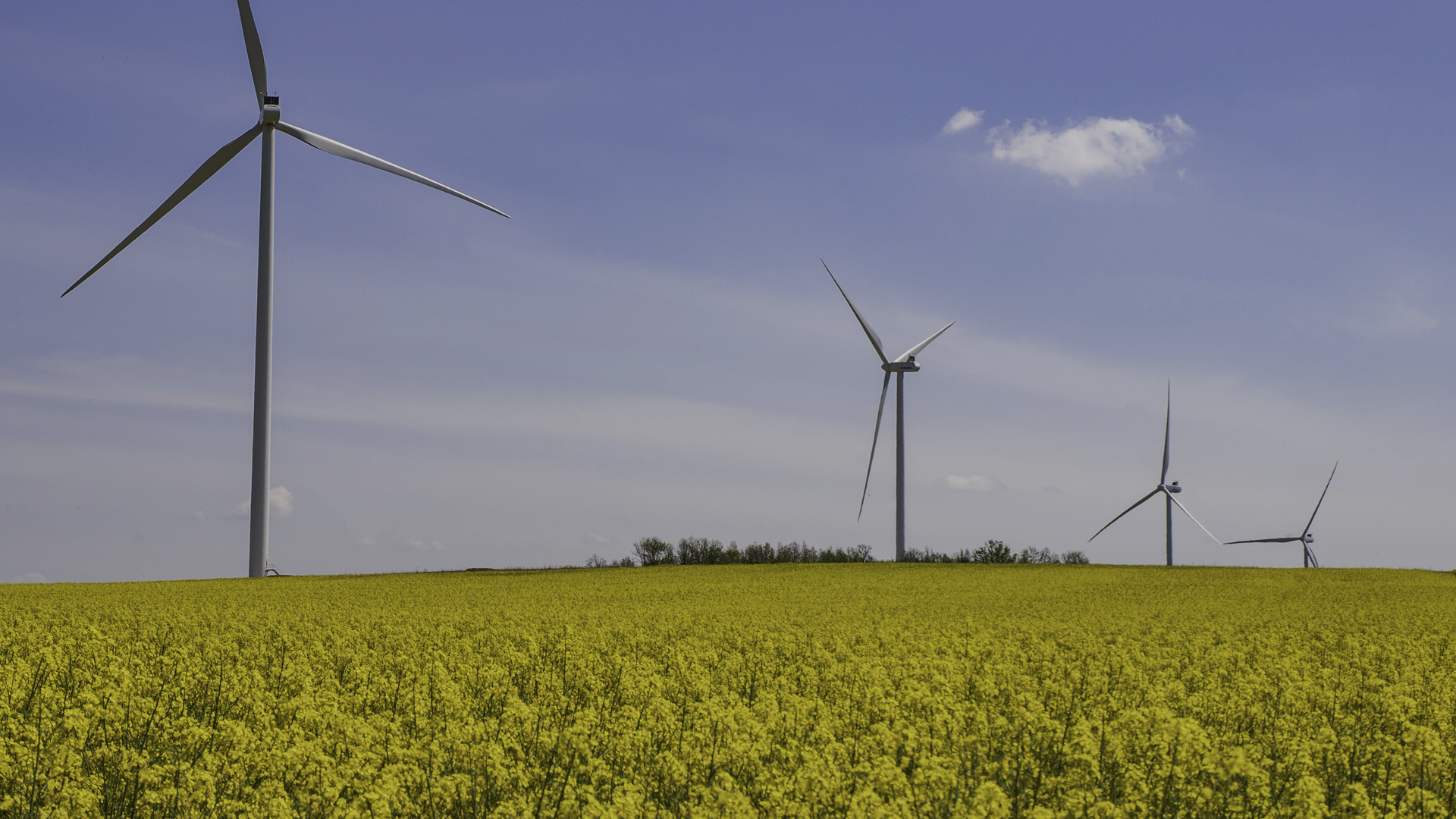23.02.2018 | Axpo CEO Andrew Walo on EcoVadis' top rating
"I was very pleased to receive the award"
How sustainable is Axpo? And where do we stand in comparison with our competitors? CEO Andrew Walo talks about the importance and significance of sustainability at Axpo.
Andrew Walo, the issue of economic sustainability has been very much at the forefront of Axpo’s activities in recent years. What’s the situation today?
As a profit-oriented company, the economic side of things is always a top priority. At the end of the day, neither the environmental nor the social aspects of sustainability can be developed without the economic side of the equation. Given the very challenging market environment and changing general conditions, profitability has, understandably, been an even stronger focus for Axpo in recent years. From today’s perspective, I can say that our hard work is paying off. We have achieved recurring savings of over CHF 200 million and are successful on the growth markets.
You have defined renewable energies as a strategic growth area. How is Axpo progressing here?
Having bought Volkswind GmbH two years ago, Axpo now has a presence along the entire value chain, from development, construction and operation of the turbines to the marketing of the electricity. We connected six wind farms in France to the grid during the reporting year, making 35 turbines in all. Another 3,000 MW are in the pipeline. By way of comparison: Switzerland currently has a total of 37 wind farms. In addition, Axpo looks after a portfolio of renewable energy with an installed capacity of around 14,000 MW, chiefly wind power and photovoltaics, for its customers throughout Europe. Axpo subsidiary CKW is also planning to build new wind farms in Switzerland. A project for the Lindenberg hill has been submitted, although, unfortunately, there is a lot of local resistance to these plans too. We therefore don’t know at present whether the project will be able to go ahead.
So where is Axpo’s focus in Switzerland?
Besides biomass, our primary focus here is on hydro power. Maintenance work on power plants is often an opportunity to leverage added value from modernisation measures. For instance, this year we replaced the turbines at the Windisch small-scale hydro power plant. This enabled us to increase efficiency and, today, with the same volume of water, we produce 1,200 MWh more electricity. Thanks to a whole host of refurbishment measures at various plants, we have in fact achieved an increase in energy efficiency of more than 9,000 MWh overall. Needless to say, this is entirely consistent with a sustainability mindset.
But investment is no longer worthwhile today, is it?
The problem is: in the current climate of low prices and high taxes, investments are not usually worthwhile. In these circumstances, constructing new facilities is simply not feasible. Given the need to replace the capacity of nuclear power plants in the future, this development concerns me. We need hydro power to guarantee security of supply. The sensible thing would be to create the conditions in which there are incentives for investments. In my view, it is vital for politicians to allow more market forces to emerge, to create incentives, but without over-regulation. The ball is in the politicians’ court.
«We need hydro power to guarantee security of supply.»Axpo CEO Andrew Walo
This year, Axpo was awarded the gold sustainability medal by rating agency EcoVadis for the first time. Did that come as a surprise?
I was thrilled with the award, as it is evidence of external appreciation for the efforts and success of our employees in the area of sustainability. Many years ago, Axpo became the first energy company in Switzerland to report with the greatest possible transparency on its sustainability performance, in accordance with the international GRI guidelines. So it is extremely gratifying when these efforts bear tangible fruit and are recognised by rating agencies.
So are ratings like these important to you?
I think you have to be a bit discriminating. There are countless ratings, some based on more rigorous criteria than others. GRI is an internationally recognised standard, EcoVadis an established rating. This matters in that, increasingly, our customers demand good ratings. Nowadays, in fact, some demand a particular score before we can even submit a quotation. The situation with energy is no different to other products: the customer wants to know exactly where a product comes from and how it was produced. We have to be able to answer those questions. The awarding of the gold medal and the ranking in the top 5% of all rated companies at EcoVadis speak for us. When it comes to winning a customer, that can most definitely tip the scales in our favour. For the same reasons, we have decided to adjust our sustainability targets to make it easier for us to compare ourselves with other companies. The sector is our benchmark. And our customers can more easily rank our targets and how well we are doing in achieving them.
In Switzerland, it is through its football sponsorship that Axpo is most visible among the general public. What about your commitment to sport for the disabled?
Nowadays, Axpo spends less on its presence in elite football. Instead, we have expanded the popular Axpo football camps for sport-mad girls and boys. We are supporting women’s football too. And rather than simply maintaining our cooperation with PluSport, we have actually expanded the programme with football teams for disabled athletes, so that adults can now join in as well. We have also been a partner of the annual PluSport Day in Magglingen for more than ten years. Like many of my colleagues at Axpo, I always volunteer at this event. However, I feel it is equally important for Axpo to employ a variety of people with disabilities. Therefore, we were only too pleased to comply with the request to sign up to the CHARTA, a commitment by employers to the equal treatment and integration of people with disabilities at work.

